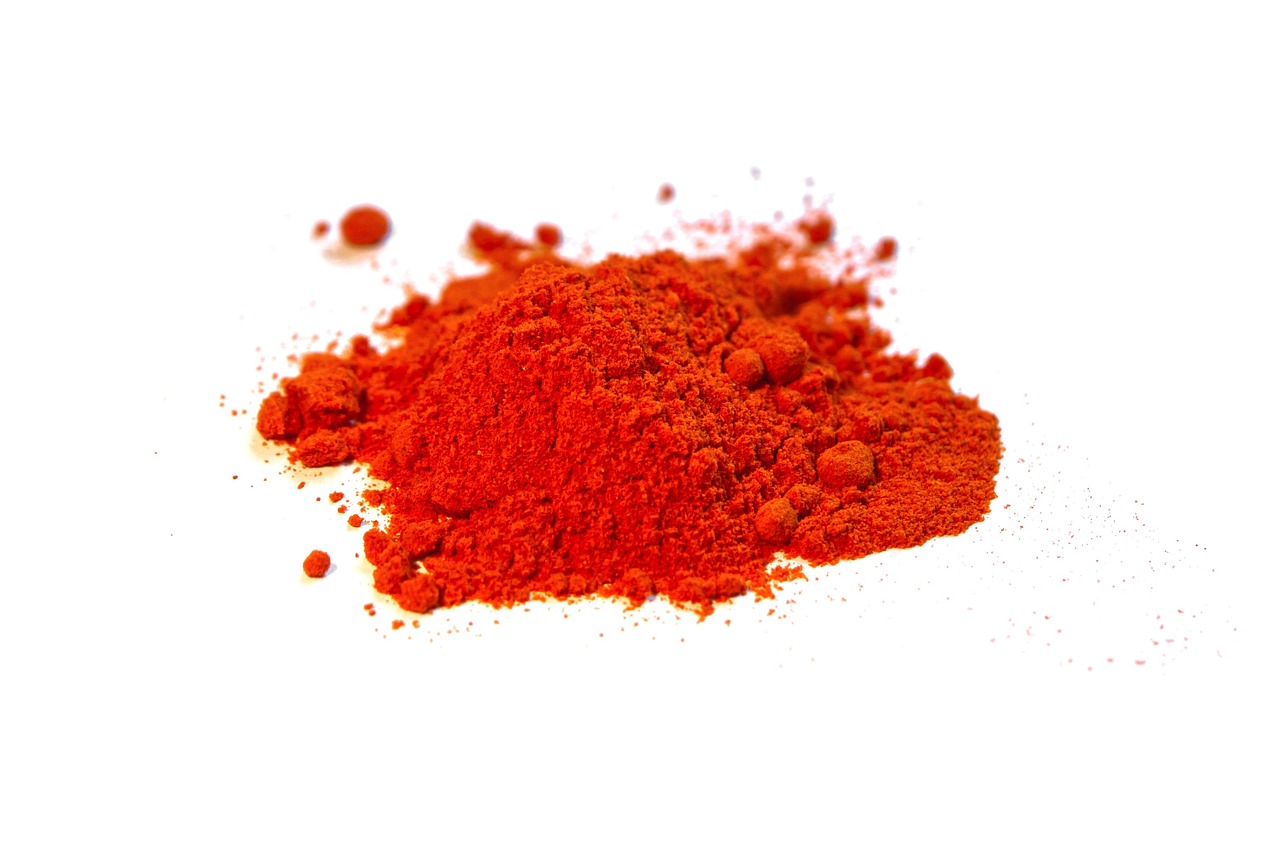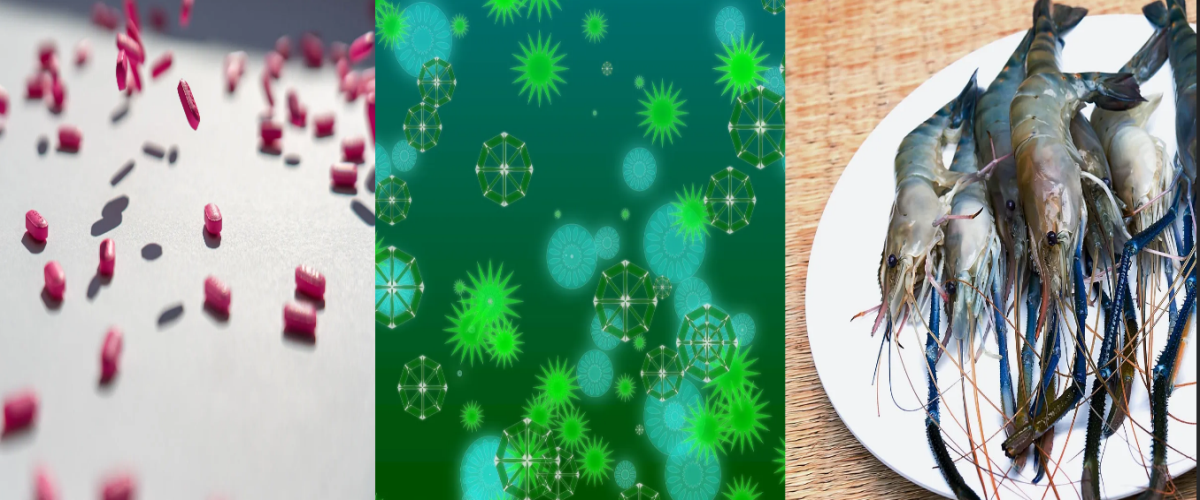Astaxanthin, a powerful antioxidant derived from algae, is gaining popularity due to its numerous health benefits. This naturally occurring pigment is found in certain marine plants, algae and seafood and gives them their vivid red or pink color. Astaxanthin has incredible potential to improve your overall health. From fighting oxidative stress and inflammation to boosting heart health, boosting the immune system, supporting eye health, enhancing cognitive function, and improving skin health, astaxanthin is proven to be an excellent supplement for promoting healthier, more energized skin life.
Often referred to as the "King of Carotenoids," Astaxanthin is a potent antioxidant and pigment that belongs to the lutein family. It occurs naturally in a variety of marine sources such as microalgae, yeast, salmon, trout and shrimp.
Astaxanthin has a bright red pigment that gives certain sea creatures, especially salmon and flamingos, their distinctive colors. However, its benefits go far beyond pigment and aesthetics. The antioxidant properties of astaxanthin make it an incredible compound with several potential health benefits.

One of the distinguishing features of astaxanthin is its ability to fight oxidative stress and free radicals. Oxidative stress occurs when there is an imbalance between the production of harmful free radicals and the body's ability to neutralize them. The potent antioxidant properties of astaxanthin help combat this imbalance and protect our cells from damage caused by free radicals.
Derived from microalgae, known for its antioxidant properties, astaxanthin is a nutrient that has several benefits for our overall health. So what are the benefits of astaxanthin?
★ Miraculous Antioxidant
Astaxanthin is a potent antioxidant scientifically proven to be more powerful than other well-known antioxidants such as vitamin C and vitamin E. Its unique molecular structure allows it to move freely in the body, neutralizing harmful free radicals, thereby contributing to oxidative stress. By fighting oxidative stress, astaxanthin helps protect our cells, tissues and organs, prevents premature aging and supports the healthy functioning of various body systems.
★ Optimal Eye Health
One of the most notable benefits of astaxanthin lies in its ability to promote optimal eye health. Multiple studies have shown that astaxanthin can cross the blood-retinal barrier to reach the retina and prevent oxidative damage. Regular consumption of astaxanthin can reduce eye strain, improve vision, and reduce the risk of age-related macular degeneration (AMD) and cataracts.
★ Enhance skin radiance
Astaxanthin's remarkable antioxidant properties extend to our largest organ - the skin. By neutralizing free radicals caused by environmental stressors such as UV radiation and pollution, astaxanthin helps protect skin's collagen and elastin, promoting elasticity and reducing the appearance of wrinkles and fine lines. Additionally, the anti-inflammatory properties of astaxanthin can help relieve some skin conditions for a radiant, youthful complexion.
★ Endurance and athletic performance
For those looking for an athletic edge, astaxanthin may prove to be a valuable secret sauce. Studies have shown that astaxanthin has potent anti-inflammatory properties that can reduce muscle damage and improve muscle recovery. Additionally, astaxanthin has been shown to enhance endurance and athletic performance by increasing muscle strength, endurance and reducing fatigue. Whether you're an athlete or a fitness enthusiast, incorporating astaxanthin into your daily supplements can provide an extra boost.
★ Heart Health Boosters
Maintaining a healthy cardiovascular system is essential to living a long and fulfilling life. Astaxanthin has been linked to many cardiovascular benefits, including lower blood pressure, reduced inflammation, and improved lipid profile. Its powerful antioxidant properties play a vital role in preventing oxidation of LDL cholesterol, an important risk factor for heart disease. By including astaxanthin in your daily diet, you can actively promote heart health and reduce your chances of cardiovascular complications.

Before we get into the comparison, let's define what antioxidants are and why they are vital to our health.

Astaxanthin is generally considered safe to eat when taken within the recommended dosage range. It has been studied extensively and is classified by regulatory agencies as a food additive or dietary supplement rather than a drug. However, like any other supplement, astaxanthin may, on rare occasion, cause certain side effects. These symptoms may include temporary discoloration of the skin, increased bowel movements, or stomach upset. Always consult a healthcare professional before incorporating astaxanthin into your regimen, especially if you have an existing medical condition or are taking any medications.
Choosing a high-quality astaxanthin supplement is critical to minimizing potential risks. Look for a reputable manufacturer who follows strict quality control standards and ensures that high-quality organic ingredients are used for extraction. Verifying a third-party test certificate can help confirm a supplement’s authenticity and purity.
Q: What is the recommended dosage of astaxanthin?
A:The dosage of astaxanthin can vary depending on the individual's health goals and overall health status. It's important to follow the instructions provided by the supplement manufacturer or consult with a healthcare professional to determine the appropriate dosage for you.
Q:How does astaxanthin support eye health?
A:Astaxanthin is known to accumulate in the retinas of the eyes, where it helps to protect the delicate structures from oxidative damage. Research suggests that astaxanthin can improve visual acuity, reduce eye fatigue, and even prevent age-related macular degeneration, a leading cause of vision loss in older adults.
Disclaimer: This article is for informational purposes only and should not be considered medical advice. Always consult a healthcare professional before using any supplements or changing your healthcare regimen.
Post time: Sep-11-2023





